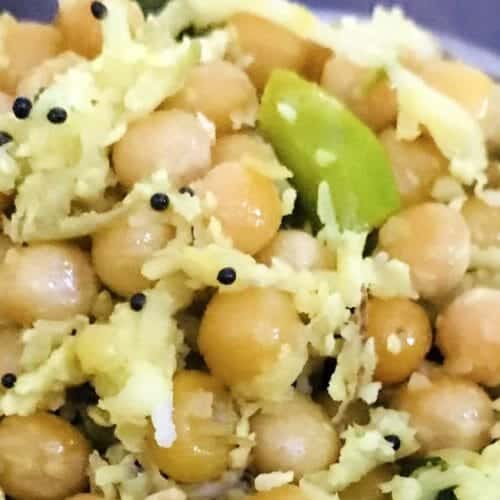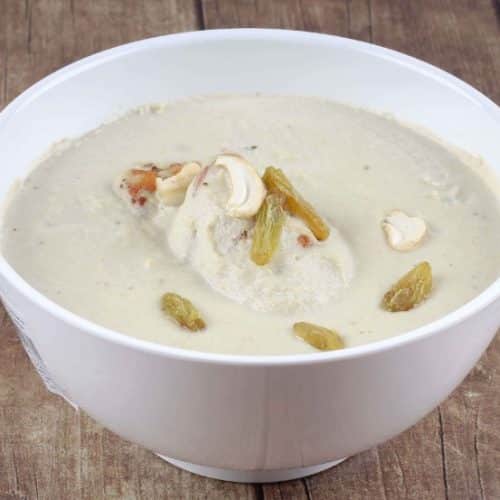As the calendar turns to late summer, one cannot help but think about all the amazing seasonal produce that will soon fill our plates. Fruits are arguably the best part of summer’s bounty. Loaded with a plethora of vitamins, minerals, antioxidants and fibre, these deliciously juicy, sweet, and vibrantly colourful fruits contribute massively to a healthier diet.
Whether you’re enjoying a poolside barbeque, a picnic in the park, or just need a refreshing snack on a hot day, these summer fruits are perfect for those warmer months. From the hydrating power of watermelons to the potent antioxidants in berries and the tropical goodness of mango and papaya, there’s a fruit for every palate and dietary requirement.
Join us on a delectable journey as we explore the top 10 must-try fruits this summer season, discussing their nutritional profiles and suggesting fun, easy ways to include them in your daily meals.
Top 10 Summer Fruits for a Healthy Diet
Summer’s menu is never disappointing when it comes to the abundance of fresh, flavorful fruits. Each fruit has its unique varieties, and picking and choosing from the summertime spread could get overwhelming. Here, we will unearth the nutritional gems within your favourite summer fruits and discuss ten of the best-suited ones for a healthy diet – Watermelon, Mango, Papaya, Blueberries, Strawberries, Pineapple, Kiwifruit, Cherries, Peaches, and Nectarines. Let’s start with the quintessential summer fruit – Watermelon.
1. Watermelon
Watermelon, unfailingly the start of summer, is cherished for its sweet, refreshing flavour. With about 92% water content, it plays a vital role in keeping you hydrated on hot days. Apart from being delicious, it’s also a nutrient powerhouse carrying substantial amounts of Vitamins K, A, C and B-6 besides magnesium and Potassium. These Vitamin-rich fruits add to our immune system health, eye health, and overall hydration levels. Yet another perk – it’s low in calories! Enjoy it straight from the rind, toss it into salads, or squeeze it into refreshing juices or cocktails.
2. Mango
Earnestly called the ‘king of fruits,’ Mango offers a tropical respite during the sweltering summer months. High in fiber and hilariously rich in vitamins A, C, E, and B-6, mangoes are as nutritious as they are indulgent. This stone fruit packs in a zesty punch coupled with loads of disease-fighting antioxidants that can boost your health in new ways. They also offer digestive benefits, thanks to a good amount of dietary fibre. Enjoy them straight up, blend them into smoothies, or incorporate them into salsas and salads.
3. Papaya
Papaya, or the ‘pawpaw fruit,’ is a summer favourite with a host of health benefits. Known for its digestive benefits, thanks to an enzyme named papain, it is also rich in antioxidants and flush with vitamins A, C, and E. Studies have shown papaya to be beneficial for heart health and protective against skin damage. With a sweet and mellow taste, Papayas can be enjoyed raw, juiced, or even grilled. It also adds an exotic touch to fruit salads and smoothies.
Also read: Latest Papaya Recipes
4. Blueberries
Blueberries are the superstars of summer produce. These bite-sized delights are known for their high antioxidant content, notably anthocyanins that give them their deep blue colour. They’re also great sources of fibre, vitamin K, and vitamin C. Regularly eating blueberries may help lower blood pressure, boost brain health, and keep your heart healthy. Plus, they’re incredibly versatile: enjoy them fresh, toss them into salads, blend them into smoothies, or bake them into muffins.
5. Strawberries
It’s impossible to talk about summer fruits without mentioning strawberries. Sweet yet slightly tart, strawberries offer a good dose of vitamin C, manganese, folate, and potassium. Packed with antioxidants, they help fight harmful free radicals and reduce inflammation. Interestingly, strawberries are also one of the fruits that can potentially aid in weight loss. Whether you’re adding them to a fruit salad, blending them into a smoothie, topping your cereal, or just enjoying them straight from the farmer’s market, they’re summertime joy encapsulated!
6. Pineapple
Bright, tropical, and delightfully tangy – Pineapples are indeed fantastic. They pack in a nutritional punch with high levels of vitamin C, manganese, and Thiamine. A bonus – bromelain, an enzyme unique to pineapples, can aid digestion, reduce inflammation, and even boost immune function. Eating pineapple during summer is akin to sipping the flavoursome sunshine, whether freshly sliced, grilled for a smoky touch, or juiced for a refreshing cocktail.
7. Kiwifruit
Also known as the Chinese gooseberry, the often-overlooked Kiwi is a true summer hero. Lush green flesh with black seeds and a distinct tart-sweet flavor makes it instantly recognizable. Just one cup of it can provide more than the daily recommended amount of Vitamin C. It also supplies essential antioxidants and dietary fiber, contribute to heart health, digestion, and skin wellness. Enjoy them raw, add them to your fruit salad mix, or blend into smoothies.
8. Cherries
A bowl of cherries is pure bliss during the summer months. Beyond their delicious flavour, cherries pack a powerful nutritional punch with high levels of antioxidants and anti-inflammatory compounds. These little ruby gems contain fibre, protein, and a good amount of Vitamin A and C. Whether you enjoy them fresh, use them in drinks or sauces, cherry pies or jams, they are sure to leave you with a taste of sweet summertime.
9. Peaches
Peaches, with their velvety skin and juicy flesh, scream summer like no other fruit. They’re not just tasty but are also a rich source of vitamins A and C. Research suggests that the bioactive compounds in peaches can potentially fight metabolic syndrome, a group of disorders that increase the risk for heart disease and diabetes. Perfect for baking into pies or grilled for a smoky spin, peaches are a sweet, succulent star of summertime produce.
10. Nectarines
Nectarines often considered the smoother sibling of peaches, offer a tangy-sweet flavour profile. These summer fruits are a great source of Vitamins A, C, and E, plus potassium and fibre. Like peaches, they also contain antioxidants that can promote eye health and strengthen immune function. Whether you take a raw bite of its juicy goodness or incorporate it into savoury dishes and desserts, nectarines bring a sunny delight to your palate.
Also read: Protein Rich Food Veg: Ultimate Guide For Healthy Eating
Nutritional Benefits of the Summer Fruits
While the refreshing taste of these summer fruits is undeniable, they’re also incredibly nutritious. They’re lush sources of essential vitamins, minerals, and antioxidants — making their consumption extremely beneficial for our overall health. The highlight is the substantial quantities of Vitamins K, A, C and B-6, Magnesium, Potassium, and dietary fibre each of these fruits boasts. But that’s not all! Let’s delve into a more detailed look at these nutritional benefits.
Vitamins and Minerals
Most summer fruits are powerhouses of vital micronutrients. Notably, they’re rich in several essential Vitamins and minerals that might help keep various chronic diseases at bay, boost immunity and improve skin health. Here’s a quick comparison of our top picks:
| Fruit Name | Key Vitamins | Key Minerals |
|---|---|---|
| Watermelon | Vitamins A, C and B | Magnesium, Potassium |
| Mango | Vitamins A, C, E and B-6 | Potassium |
| Papaya | Vitamins A, C and E | |
| Blueberries | Vitamin K, C | |
| Strawberries | Vitamins C, Manganese | Folate, Potassium |
| Pineapple | Vitamins C, Thiamine | Manganese |
| Kiwi | Vitamins A, C and B-6 | Iron |
| Cherries | Vitamins A, C | |
| Peaches | Vitamins A and C | |
| Nectarines | Vitamins A, C and E | Potassium |
Just one serving of these fruits might provide a significant chunk of your daily recommended intake of these essential micronutrients.
Antioxidants and Fiber
Summer fruits offer a hefty dose of antioxidants and fibre, both crucial for optimum health. Here’s how:
- Antioxidants: These substances help protect cells from damage by harmful free radicals, potentially reducing the risk of chronic diseases like heart disease and cancer. Most of the summer fruits are abundant in potent antioxidants. For instance, blueberries and strawberries are rich in anthocyanins, which may support heart health.
- Fibre: This indigestible carb plays a significant role in digestive health. It aids bowel movements, helps control blood sugar levels, and may reduce cholesterol levels. Fruits like mango, papaya, and pineapple offer plenty of this beneficial nutrient.
How to Incorporate These Fruits into Your Diet?
Incorporating these nutritious summer fruits into your meals can be fun, creative, and versatile. As the sun gets hotter, cool down with a fresh fruit salad or a smoothie, you could stir them into your yoghurt for a healthy breakfast, or just have them as mid-afternoon snacks. Evenings could see you grilling some of these fruits for a healthy dessert option. Let’s highlight some simple yet beneficial ways to get these vitamins-packed, antioxidant-rich summer fruits into your diet.
Smoothies and Salads
- Smoothies: Fresh summer fruits make nutrient-dense additions to your breakfast or snack-time smoothies. Try a mix of fresh watermelon, strawberries, and blueberries blended with Greek yogurt and honey.
- Salads: Fruit salads make a refreshing side dish or even a dessert. Toss chunks of mango, pineapple, and papaya for an exotic tropical bowl or mix strawberries, blueberries, and cherries for a delightful berry salad.
- You can also incorporate these fruits into mixed salads. For example, sliced strawberries and blueberries could add a fresh twist to your spinach salad.
- Spice up your couscous or quinoa salad by adding diced nectarines or peaches.
Desserts and Snacks
- Desserts: Summer fruits offer a healthier way to satisfy your sweet tooth. Freshly chopped peaches and nectarines go great in pies and tarts. Or simply drizzle some honey on grilled pineapple for a tasty dessert.
- Ice Pops: Liven up hot afternoons with homemade ice pops. Blend watermelon and strawberries, pour the mixture into moulds, freeze, and enjoy!
- Fresh berries top off pancakes or waffles beautifully for a Sunday brunch or when you just need something extra.
- Sliced fruits like kiwis, peaches or nectarines could be a tasty topping for whole grain toast with cream cheese.
Conclusion
As we enjoy the lazy, hazy days of summer, it’s the perfect opportunity to embrace the bounty that this season provides us. The vibrant range of summer fruits adds colour, flavour, and vital nutrients to our diet. In their purest form or incorporated creatively in meals, they offer numerous health benefits while satisfying our taste buds. From maintaining optimal hydration to boosting immunity and supporting digestion, these ten fruits deserve a spot on your summer menu.
Savor watermelon slices at a picnic, mix fruits for smoothies and juices, toss them into salads, grill them for desserts or freeze for a quick snack – there are countless ways to relish these delicious health bombs. Not to mention, they are fantastic additions to your weight management efforts.
So, feel the freshness, enjoy the burst of flavours, and brace yourself for a delightful nutritional upgrade in your lifestyle with the best fruits summer has to offer. The long warm days this season brings us closer to nature’s sweet treats – Let’s make the most of it!
Frequently Asked Questions
What fruits have the highest water content in summer?
Watermelon tops this list with about 92% water content, providing hydration on hot summer days. Other fruits with high water content include peaches, nectarines, strawberries, pineapple, and oranges. These fruits are absolutely refreshing during warm weather and excellent for preventing dehydration.
How can one store summer fruits to maintain their freshness?
Most fruits should be stored in a cool, dry place, away from direct sunlight and high temperatures. Once ripe, fruits like berries, cherries, and kiwi should go in the fridge. Stone fruits like peaches and nectarines should ripen at room temperature and then be refrigerated once ripe.
Can you eat watermelon seeds?
Yes! Watermelon seeds are edible and packed with protein, healthy fats, and magnesium. Roasting them enhances their flavor.
Why do some peaches have a bitter taste near the pit?
This bitterness comes from cyanogenic compounds, which are naturally occurring in the pits and sometimes leach into the flesh. It’s harmless in small amounts.






















